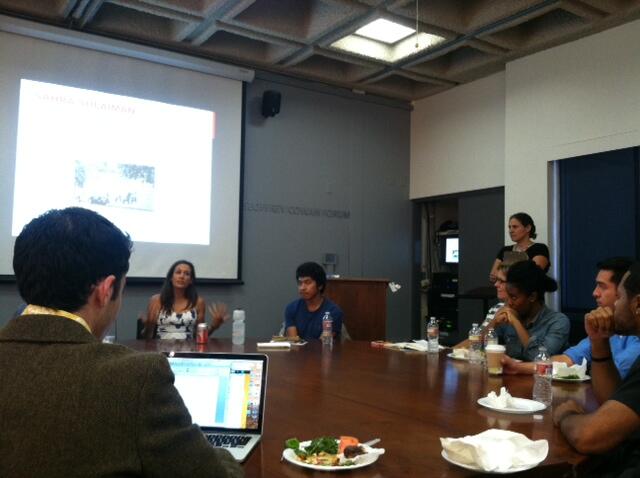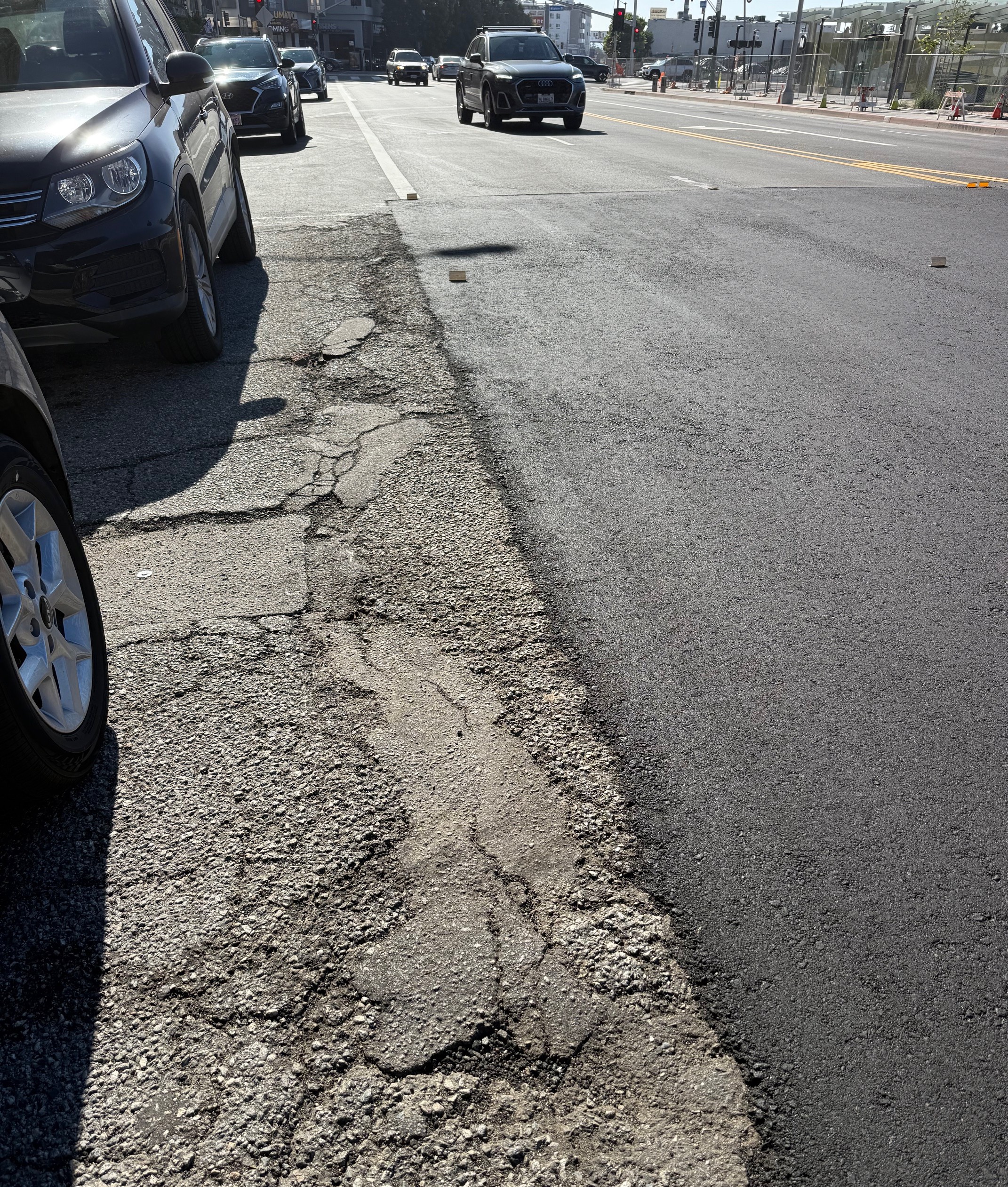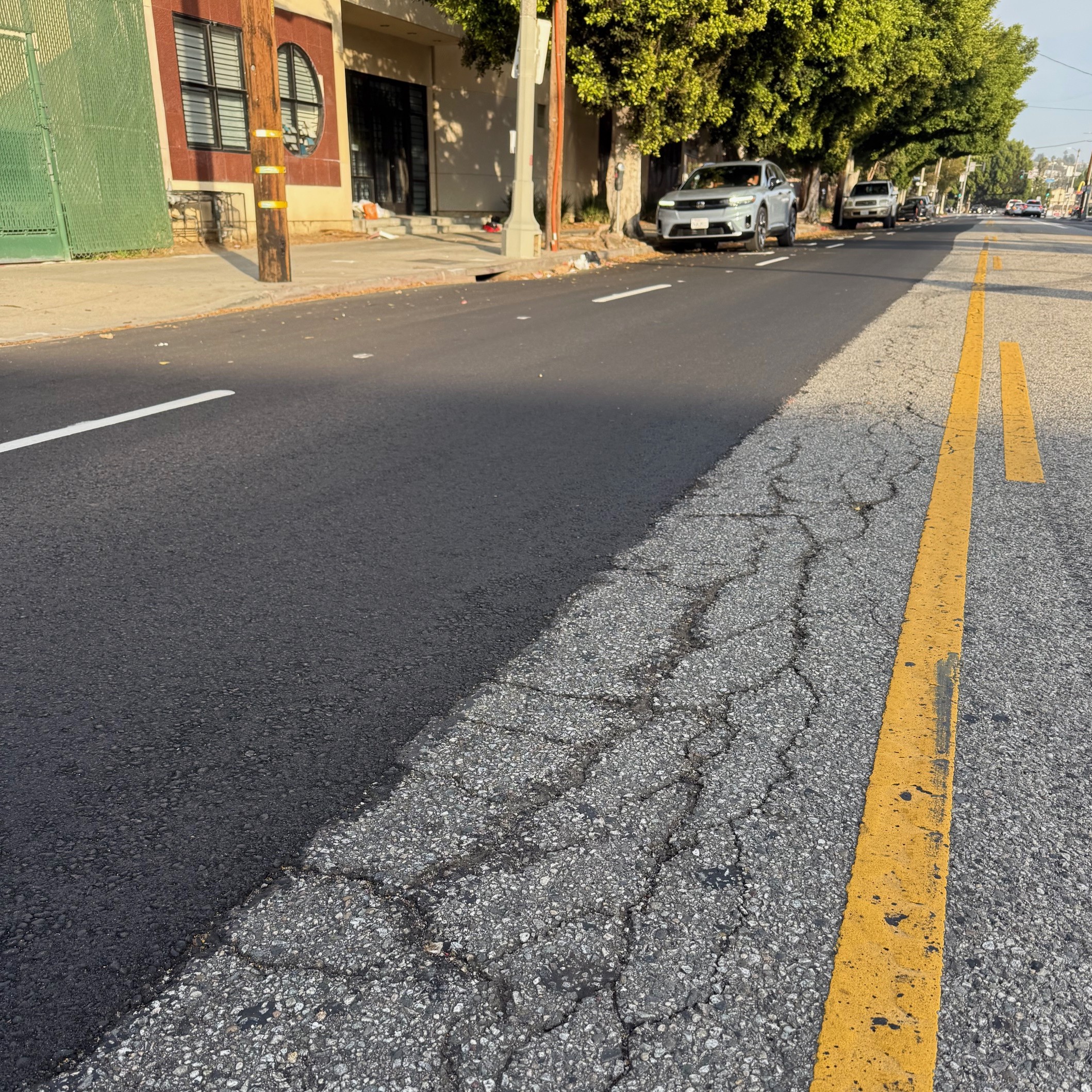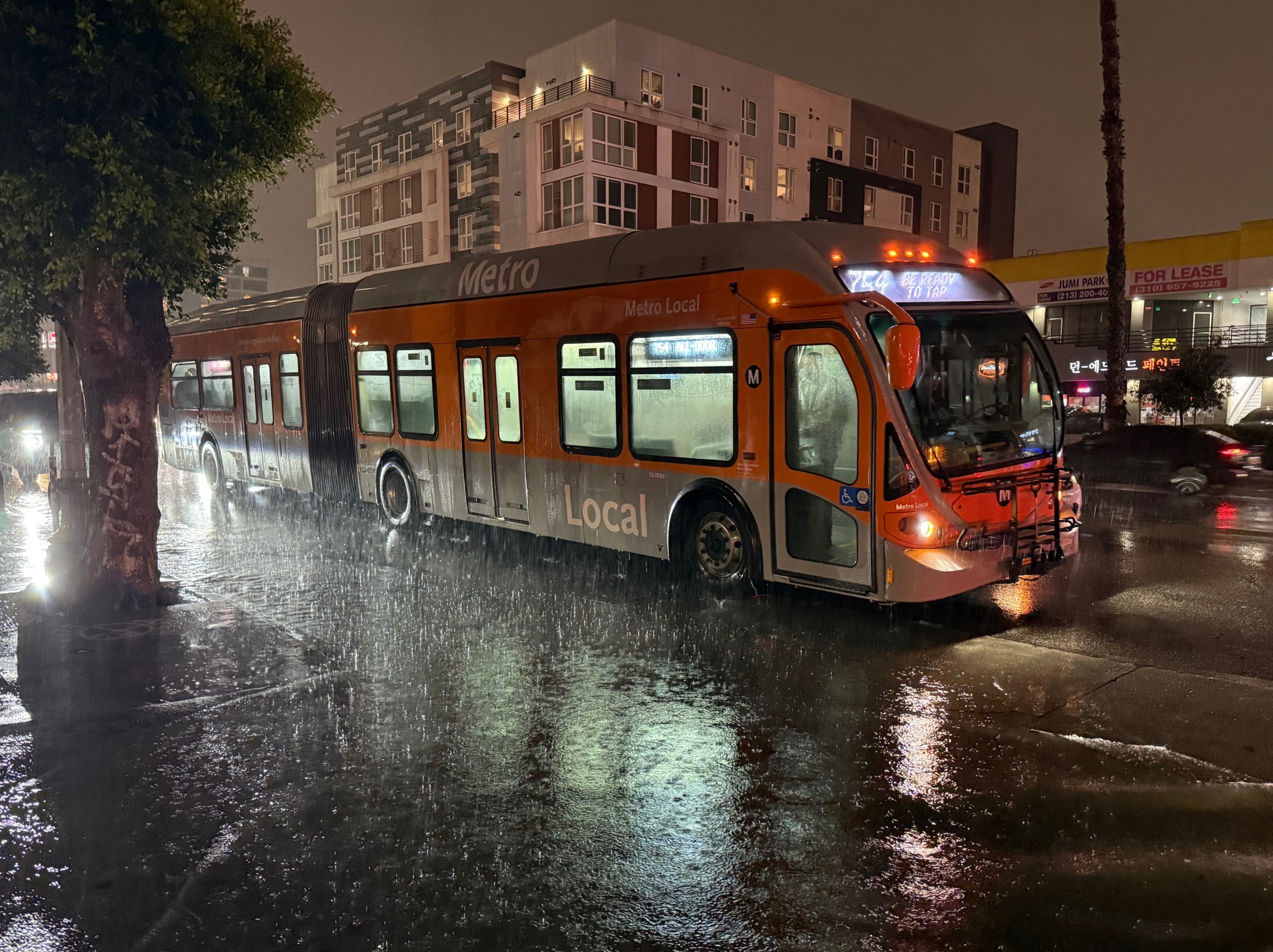So, this might be kind of an odd and non-newsy post, but I wanted to take a second to thank our readers for allowing us, and particularly me, to do the kinds of reporting we do here.
I had the chance to speak at a Director's Forum at USC's Annenberg School of Journalism earlier this week with other journalists and some of the budding reporters we mentored this summer as part of USC's Reporter Corps program.
The lunch-hour roundtables allow journalism students and interested parties to sit in and learn about the intricacies of the craft from those that have been working in the field or are experts in a topic that happens to be all over the airwaves. The topic of our conversation had to do with going beyond parachute-reporting when telling stories about diverse communities, and the challenge of doing so when you are an outsider to those communities.
I've spoken in a few such forums or classrooms on how to do community-based journalism over the past couple of years and, I admit, I always feel a bit like a poser.
I mean, I'm not an idiot. I am a trained researcher -- I spent almost a decade in academia, studying everything from drugs trafficking to civil war to refugee crises to human rights law to international humanitarian operations to genocide to development. If it was transnational and tragic, I was all over it. But I'm not trained as a journalist. And trying to fit what I'm doing into what I understand to be a more traditional journalism framework has sometimes felt awkward.
Which is why it is so exciting to see that the field is changing.
In part, the changes are due to the void created by inability of larger-but-downsized news outlets to regularly cover the complexities, nuances, needs, and aspirations of more marginalized communities.
But, it is also because that void has allowed community-based folks like me to do reporting that is more engaged, on-the-ground, and in partnership with communities. And readers seem to realize that what we care about is the betterment of the community, which gives subjects and readers alike a more personal connection to the stories and a stake in the outcomes.
In my case, having to write stories is an excuse for me to spend a lot of time just being in the community -- attending meetings, talking with folks on the street about random stuff, volunteering when I can, and trying to facilitate networking between people and organizations. Because the writing sometimes takes a backseat to community-building, I might not write about half of what I did or saw in a community in a week. But, whatever I participated in or learned will probably end up serving as context that enhances my ability to explain what policies or events mean to residents in future articles.
It's a ridiculously luxurious way to be able to do journalism, in my opinion, and I feel so privileged to be able to do it. And, I feel even more privileged to see that it seems to be striking a chord with would-be journalists or urban planners, who ask about ways they can engage hard-to-reach folks and thank us for helping them get to know communities that tend to be on the margins.
I mean, I still get questions like, "Aren't you afraid to go there?" But, the questions are often driven by the sincere desire to get past the stereotypes the inquirers are aware they are beholden to, and are occasionally followed up by requests that I help introduce them to the community or even give them a tour (which I have been known to do).
It feels good to know that people are really eager to build bridges and heal divides, and that, because of your support for this work, we've been able to help out with that process.
So, if you happen to see a someone at CicLAvia walking along (yep, I plan on walking it this time around) who looks like the woman pictured above, please stop to say hello so I can thank you in person.







